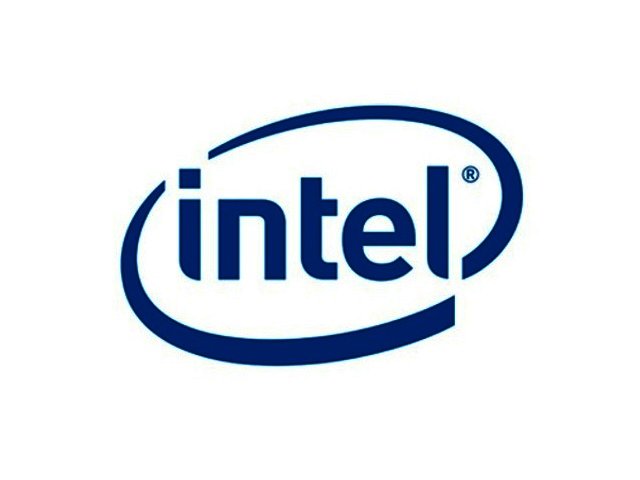PREVIOUS ARTICLENEXT ARTICLE
NEWS

Intel provides a peak into the future of mobile computing
By Staff Writer 31 May 2011 | Categories: news
CPU maker Intel has predicted that by the end of 2012, 40% of the consumer notebook market segment will encompass an emerging new breed of no-compromise computers. These will increasingly combine top performance, improved responsiveness and security in thin, elegant form factors.
During the COMPUTEX 2011 expo currently underway in Taipei, Taiwan, Intel executive vice president Sean Maloney outlined the significant changes that the company is making to enable this new category. Maloney highlighted Intel’s push to accelerate the pace of innovation for system-on-chips (SoCs) for netbooks, smartphones, tablets, and other companion devices. Intel’s vision is to enable a new user experience by accelerating a new class of mobile computers.
“Computing is taking many forms,” said Maloney. “Technology innovation is a catalyst, and we believe the changes Intel is making to its roadmaps, together with strong industry collaboration, will bring about an exciting change in personal computing over the next few years.”
From Sandy Bridge to Ivy Bridge
Maloney described three key phases in the company’s strategy to accelerate the vision, which begins to unfold with the company’s latest 2nd Generation Intel Core processors. This family of products will enable thin, light and beautiful designs that are less than 20 mm thick.
ASUS Chairman Jonney Shih joined Maloney on stage to showcase the company’s new ultra-thin notebook based on the latest 2nd Generation Intel Core processor.
“At ASUS, we are very much aligned with Intel’s vision of Ultrabook,” said Shih. “Our customers are demanding an uncompromised computing experience in a lightweight, highly portable design that responds to their needs quickly. Transforming the PC into an ultra thin, ultra responsive device will change the way people interact with their PC.”
Building on the latest 2nd Generation Intel Core technology, Maloney outlined the next generation Intel processor family codenamed “Ivy Bridge,” which is scheduled for availability in PC systems in the first half of 2012. Notebooks based on “Ivy Bridge” will bring improved power efficiency, smart visual performance, increased responsiveness and enhanced security.
“Ivy Bridge” is the first high-volume chip based on Intel’s 22 nanometer (nm) manufacturing technology that uses a revolutionary 3-D transistor design called Tri-Gate announced in May.
Maloney also highlighted the fact that more people and devices connecting to the internet will lead to unprecedented growth in cloud-based services for storage, synchronisation and entertainment. To illustrate this point he stated that one new Intel-based server is needed for roughly every additional 600 new smartphones or 122 new tablets connecting to the internet.
He also reiterated the company’s “Cloud 2015” vision of a world of interoperable “federated” clouds, which enables enterprises to share data securely across public and private clouds. These “automated” networks will also allow the movement of workloads between servers in the data center for better utilisation and energy efficiency and “device-aware” clouds that know what types of applications, commands and processing.
Accelerating the Intel Atom Processor Roadmap
Intel’s executive vice president then highlighted key milestones and additional details on upcoming generations of Intel Atom processor-based platforms for tablets, netbooks and smartphones. The Atom processor will outpace Moore’s Law, accelerating from 32 nm through 22 nm to 14 nm within three successive years.
Having a cadence of a new-process-generation every year will result in significant reduction in transistor leakage, lower active power and an increase of transistor density to enable more powerful smartphones, tablets and netbooks with more features and longer battery life.
Cedar Trail on the way
Reaching its 100 million-unit milestone this month, Intel is preparing its next-generation netbook platform, codenamed “Cedar Trail.” “Cedar Trail” is the first netbook platform based on Intel’s 32 nm technology, and will enable ultra-thin, fanless designs with new capabilities.
These capabilities include Intel Rapid Start technology, providing users with a faster resume action from standby, Intel Smart Connect Technology that enables an always updated experience even during standby, and Intel Wireless Display and PC Sync, which let users wirelessly update and synchronize documents, content and media across multiple devices.
In addition, the new platform is expected to enable over ten hours of battery life and weeks of standby. “Cedar Trail” will support leading operating systems, such as Microsoft Windows, Google Chrome and Nokia and Intel’s MeeGo.
Intel’s 1st smartphone- and tablet PC targeting platform
Next, Maloney discussed “Medfield,” Intel’s first purpose-built 32 nm platform for smartphones and tablets. “Medfield” has been optimised for both low power and high performance and will deliver long use-time, rich media and gaming, as well as advanced imaging capabilities.
To illustrate this point in tablets, Intel showcased a “Medfield” design running Google Android 3.0 (“Honeycomb”) for the first time. In production later this year, the platform will enable sub-9 mm designs that weigh less than 1.5 pounds (around 680 g) for tablet designs in market the first half of 2012. It will support a range of operating systems including Android and MeeGo.
“The work Intel is doing with the Intel Atom processor roadmap, coupled with the significant changes the company is making to its Intel Core processor roadmaps, will continue to enhance Intel’s ability to deliver complete hardware solutions with a choice of software platforms across a full spectrum of computing - from back-end servers that power the cloud to the billions of devices that access the cloud,” concluded Maloney.
USER COMMENTS
Most Read Articles
Read

Magazine Online
TechSmart.co.za is South Africa's leading magazine for tech product reviews, tech news, videos, tech specs and gadgets.
Start reading now >
Download latest issue
Have Your Say
What new tech or developments are you most anticipating this year?
New smartphone announcements (45 votes)
Technological breakthroughs (29 votes)
Launch of new consoles, or notebooks (14 votes)
Innovative Artificial Intelligence solutions (29 votes)
Biotechnology or medical advancements (24 votes)
Better business applications (160 votes)



